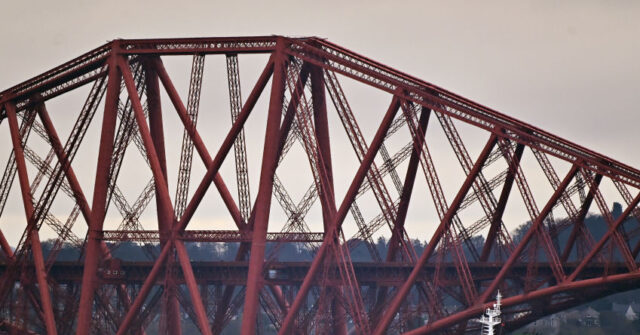

There is a “significant risk” of gas shortages so severe they would see gas-powered power plants go offline in Great Britain this winter, the energy market regulator has warned: the latest such warning of major shortages across Europe in recent days.
England, Scotland, and Wales face a “significant risk” of natural gas shortages leading to a “Gas Supply Emergency” this winter, a letter published by the energy generation regulator Ofgem and reported on by The Times reveals.
European Union Meeting Gas Needs by Turning to Communist China, which Has Bought Surplus Supplies from Russiahttps://t.co/AVmpwlbSRe
— Breitbart London (@BreitbartLondon) September 2, 2022
Responding to a power station owner concerned that they could face severe fines for failing to produce electricity — as they are contracted ahead of time to do — if gas supplies run out, Ofgem refers to the National Grid Procedure for Network Gas Supply Emergency document for standard procedures, but also adds reflections of its own. “Due to the war in Ukraine and gas shortages in Europe, there is a significant risk that gas shortages could occur during the winter 2022/23 in Great Britain,” the body wrote, while stating a decision will be reached on finer points of handling shortages by November 18th.
The matter at hand is no small one — as the letter notes, if energy generators are left unable to get gas for long periods of time when they are contracted to produce electricity and are fined for it, this risks ” potential insolvency of gas-fired generators” — in other words, power stations going bust. The BBC quotes power station owner SSE as saying through a spokesman: “Due to circumstances beyond our control, the station would be heavily penalised for not meeting its generation obligations.”
But the letter also illuminated other matters to consider in the case of a “Gas Emergency”. In particular, the letter refers to the ‘stage 2’ plans in the Emergency document, which lays out what will happen if an energy shortage actually happens. Beyond administrative and market role changes, the National Grid document outlines a public awareness campaign to get gas consumption down quickly, using “radio or television… relevant social media… Posters and leaflets drops”, and starting with “An appeal to ‘use as little gas as possible’.”
German Govt Warns Gas May Run Out over the Winter Months https://t.co/2ZVjLzKhTJ
— Breitbart London (@BreitbartLondon) October 2, 2022
Should that not get the desired results, the National Grid would then appeal to the public to “stop using gas” altogether — a tall order in the wintertime when most British households are heated by natural gas. Perhaps reflecting the government’s experience of managing public adherence to lockdown demands during the coronavirus era, the recently revised document notes, however: “It is anticipated that the effect of public appeals would diminish as time passes and that they would need to be repeated and reinforced at frequent intervals and eventually it is possible that the reduction in demand from the appeals would be insufficient”.
But while that was happening, something else altogether more critical would be going on: load shedding. This is cutting off the largest users of gas from the network, and as Ofgem notes this would ” likely be large gas-fired power stations which produce electricity to the National Electricity Transmission System”. Britain gets nearly half of its electricity from burning gas, depending on the time of year, hence the power cut concerns.
The admission that a “Gas Supply Emergency” is a “significant risk” this winter comes just weeks after the National Grid told consumers there would be no blackouts this winter.
It is not as though the United Kingdom is the only country facing such shortages this winter, and indeed Britain is among the less dependent nations in Europe on imported Russian gas, however, knock-on effects from that shortage in countries like Germany coupled with decades of mismanagement of energy policy by the UK government has left the country feeling as vulnerable as any.
Berlin police have even gone so far as to draw up emergency plans for dealing with unrest should the energy grid collapse during winter leaving people cold, a picture that has been reflected across Europe in recent weeks.
Trump Vindicated: Germany Braces for ‘Chaotic Conditions’ Ahead of Feared Loss of Russian Gas https://t.co/CV9t5KSp6t
— Breitbart London (@BreitbartLondon) July 3, 2022





